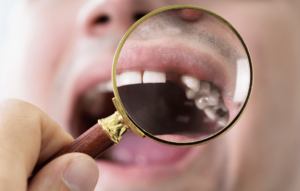Options for Replacing Missing Teeth
Addressing missing teeth is more than just a cosmetic concern. It is crucial for maintaining oral health, functionality, and overall quality of life. There are multiple options available to replace missing teeth, each with its advantages and considerations. This guide will outline the most common options to help you make an informed decision.
Dental Implants
Dental implants are a popular and permanent solution for replacing missing teeth. They involve a surgical procedure in which a titanium post is inserted into the jawbone, serving as a root for a crown that resembles a natural tooth. Dental implants are durable, natural-looking, and improve chewing ability. However, the process can be lengthy, requiring multiple appointments over several months.
Benefits:
- Durability: Implants are robust and can last a lifetime with proper care.
- Functionality: They restore bite force and allow for normal eating and speaking.
- Bone Preservation: Implants prevent bone loss by providing stimulation to the jaw.
Considerations:
- Surgical Procedure: Placement requires surgery and recovery time.
- Cost: Implants can be a significant investment compared to other options.
- Health Requirements: Not everyone is a candidate; sufficient bone density is necessary, and overall health must support surgery.
Bridges
Dental bridges are a non-surgical option for replacing missing teeth. They involve placing an artificial tooth between two existing teeth and securing it with crowns on either side. Bridges look and function like natural teeth but can put pressure on neighboring teeth and may require replacement after 5-7 years.
Benefits:
- Non-surgical: Bridges do not involve surgery or lengthy recovery time.
- Aesthetics: They provide a natural-looking solution for replacing missing teeth.
- Immediate Results: Bridges can be completed in just a few appointments, providing immediate improvement.
Considerations:
- Neighboring Teeth: Bridges can put pressure on neighboring teeth, potentially causing damage.
- Possible Replacement: They may require replacement after 5-7 years.
- Oral Hygiene: Proper oral hygiene is necessary to maintain the health of the supporting teeth and bridge.
Dentures
Dentures are removable prosthetic devices designed to replace multiple teeth or an entire dental arch. They rest on the gums and can be full or partial, depending on the number of teeth missing.
Types of Dentures:
- Full Dentures: Replace all teeth in the upper or lower arch.
- Partial Dentures: Attach to remaining teeth and fill in gaps.
Pros and Cons:
Pros:
- Cost-Effective: Less expensive initially than implants.
- Non-Invasive: No surgery is required for fitting dentures.
- Adjustable: Can be modified or replaced as needed.
Cons:
- Stability: May shift or require adhesives to stay in place.
- Maintenance: Require regular cleaning and overnight soaking.
Maintenance Tips:
- Clean dentures daily with specific cleaners, not toothpaste.
- Handle with care to avoid damage.
- Remove and soak overnight in a cleansing solution.
Dentist treatment vs. At-home solutions
While there are at-home options for replacing missing teeth, such as denture kits or dental adhesives, it is essential to consult with a dentist before making any decisions. Dentists can assess your oral health and recommend the best treatment option based on your specific needs and budget. They also have the expertise and tools to ensure proper fit and maintenance of your replacement teeth. At-home solutions may be less expensive initially, but they do not provide the same level of durability and aesthetics as professional dental treatments. Ultimately, it is crucial to prioritize long-term oral health and consult with a professional for the best outcome.
Dental restoration is not a one-size-fits-all solution, and each person’s needs may vary. Researching and consulting with a dental professional is crucial to determine the best option for you. With proper care and maintenance, your replacement teeth can provide long-term benefits for your oral health and overall well-being. Remember to schedule regular check-ups with your dentist to ensure the longevity of your replacement teeth and address any potential issues.
To learn more about dental implants, bridges, dentures, and other alternatives for replacing missing teeth, visit our clinic for a personalized consultation. We can provide detailed information and help you make an informed decision that suits your individual needs. Our experienced team will work with you to find the most effective solution that fits your needs and budget.
Don’t let missing teeth affect your quality of life; explore your options today and regain confidence in your smile.
